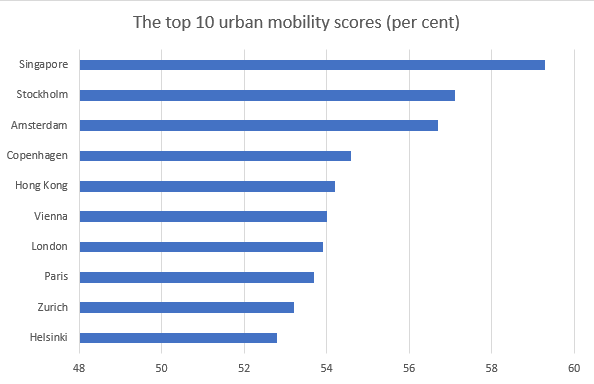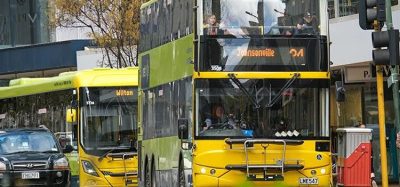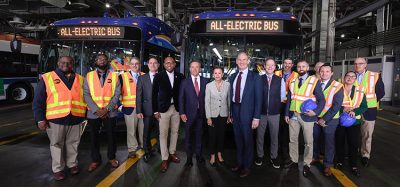Urban mobility test reveals Singapore to be the highest scoring city
- Like
- Digg
- Del
- Tumblr
- VKontakte
- Buffer
- Love This
- Odnoklassniki
- Meneame
- Blogger
- Amazon
- Yahoo Mail
- Gmail
- AOL
- Newsvine
- HackerNews
- Evernote
- MySpace
- Mail.ru
- Viadeo
- Line
- Comments
- Yummly
- SMS
- Viber
- Telegram
- Subscribe
- Skype
- Facebook Messenger
- Kakao
- LiveJournal
- Yammer
- Edgar
- Fintel
- Mix
- Instapaper
- Copy Link
Posted: 11 April 2018 | Intelligent Transport | No comments yet
Cities were marked out of 100 based on the maturity, innovativeness and performance of their urban mobility systems, highlighting how much work needs to be done to ensure transportation systems are sustainable for the future…


A test analysing cities’ mobility systems found the average worldwide score to be just 42.3 out of a possible 100 points, with Singapore’s score of 59.3 securing first place.
The third edition of the Future of Mobility study, released by Arthur D. Little, included an updated version of the Urban Mobility Index, which ranked 100 global cities based on the maturity, innovativeness and performance of their urban mobility systems.
It was found that most of the cities analysed still had potential for improvement to cope with the mobility challenges ahead.
Following Singapore was Stockholm with 57.1 points, Amsterdam with 56.7, Copenhagen with 54.6 and Hong Kong with 54.2. Only 10 cities scored more than 50 points, out of which eight were European and two Asian. London was ranked seventh with a score of 53.9.


“More than ever, the reform of mobility systems is one of the key challenges facing the world today,” said François-Joseph Van Audenhove, Partner at Arthur D. Little and Head of the Future of Mobility Lab. “In order to stay competitive in the short term and relevant in the long term, mobility solutions providers must anticipate new trends, innovate their offerings and differentiate themselves. To achieve this, they should participate in extended ecosystems and embark on transformation journeys.”
With the International Union of Public Transport (UITP), Arthur D. Little has set out 12 strategic imperatives for mobility solution providers to consider when defining their visions and strategies.
“It is at the time when public transport is given new opportunities to grow and expand, that it is also being challenged by the emergence of new actors and technologies enabled by the digital economy,” noted UITP Secretary General, Mohamed Mezghani. “Arthur D. Little’s Future of Mobility 3.0 study provides useful references to support the sector in addressing these challenges.”
There is much work to be done to improve the urban transport networks worldwide.
Related topics
Sustainable Urban Transport
Related organisations
Arthur D. Little, UITP
Related people
François-Joseph Van Audenhove, Mohamed Mezghani







